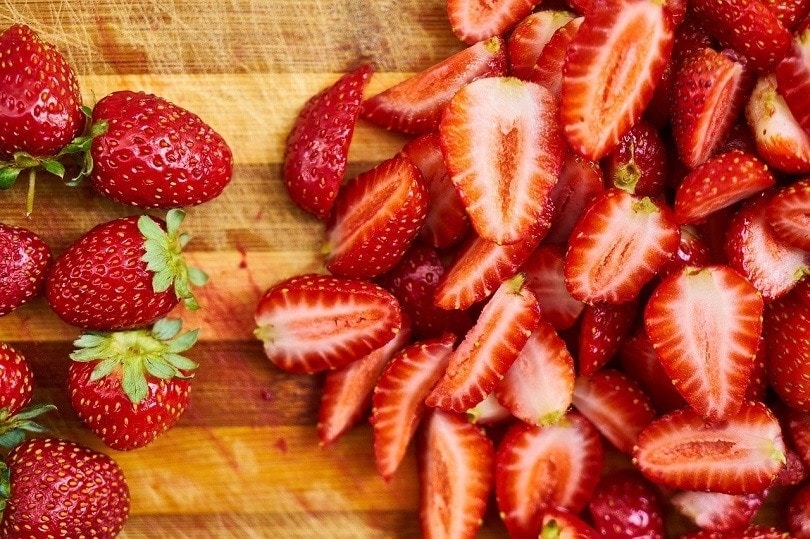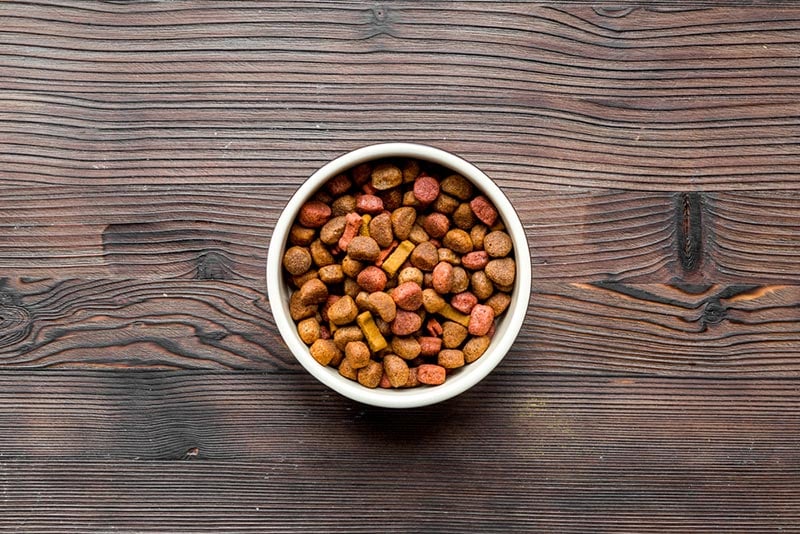Can Hamsters Eat Apples? Vet Approved Nutrition Facts & Advice
Updated on
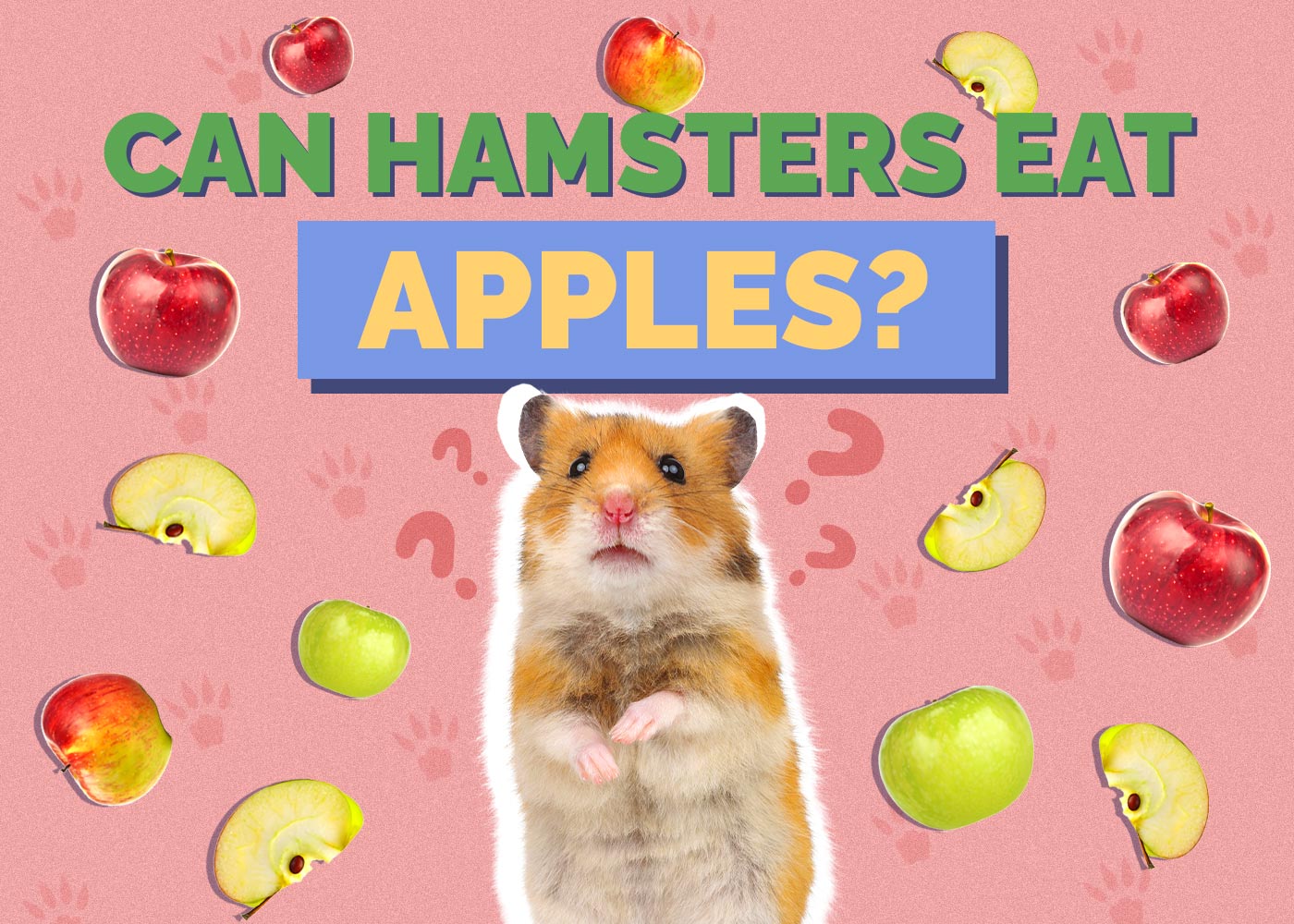
Click to Skip Ahead
Hamsters are one of the most popular pets out there because they are relatively easy to take care of and most love interacting with humans. Two things are crucial for your hamster’s well-being: providing a big enough enclosure where they can do their daily activities and a well-balanced diet. Their diet is a topic of discussion for many hamster owners; should it be only commercial food, or should you add fresh fruit and vegetables to their everyday diet?
The answer is yes, you can add fruit, like apples, into a hamster’s diet. But stay with us to learn about the benefits and risks of giving apples to your hamster.
Ideal Diet for Hamsters
When feeding your hamster, we suggest using commercial pellet foods designed for hamsters because they provide the bulk of crucial nutrients for your hamster’s health. When buying commercial food, you should avoid using muesli-style food because it is high in sugar and can cause problems with your hamster’s digestive tract.
Another very important component of your hamster’s diet is hay, mainly Timothy hay because it is full of fiber to promote healthy digestion and proper tooth wear. Your hamster should have an all-you-can-eat, fresh supply of hay at all times.
You may also offer fresh vegetables, and occasionally fruits, to give your hamster a boost of essential vitamins, minerals, fiber, and water. And most importantly, hamsters should always have an available source of fresh water in their enclosure.
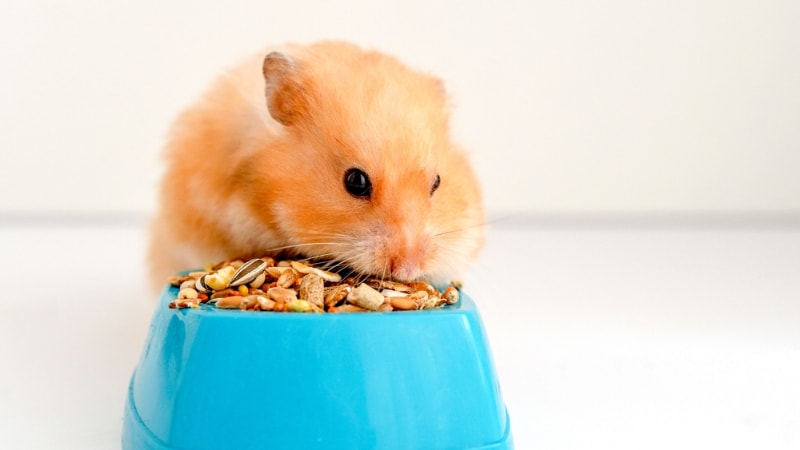
Can Hamsters Eat Fruits and Vegetables?
Yes, hamsters can eat fruit and vegetables, and not only that, but they can be very healthy for your hamster. They provide a lot of beneficial nutrients, including vitamins and minerals, that are crucial for your hamster’s health. Here is a list of vegetables that are safe for your hamster in moderation:
- Cabbage
- Broccoli
- Cauliflower
- Carrots
- Cucumber
- Cress
- Spinach
- Chicory
- Corn
- Zucchini
- Kale
- Peas
Here’s a list of fruit that your hamster can eat in moderation. Some of these are higher in sugar and should only be fed very infrequently. Consult your veterinarian on the proper amounts of each type of fruit.
- Bananas
- Blackberries
- Blueberries
- Kiwi
- Figs
- Gooseberries
- Pear
- Pineapple
- Watermelons
- Pomegranate
- Grapes
- Strawberries
Can Hamsters Eat Apples?
Hamsters can eat apples given in moderation and they can be a healthy and tasty treat. Apples are low in fat but high in vitamins, making them a great addition to your hamster’s diet. But it would be best if you were careful about how many apple slices you give to your hamster and avoid giving them apple seeds because they can be toxic for them.
Nutritional value of apples (100 g)
- Water: 85,56 g
- Energy: 52 kcal
- Protein: 0,26 g
- Total lipid: 0,17 g
- Carbohydrate: 13,81 g
- Fiber: 2,4 g
- Sugars: 10,39 g
- Calcium: 6 mg
- Iron: 0,12 mg
- Magnesium: 5 mg
- Phosphorus: 11 mg
- Potassium: 107 mg
- Sodium: 1 mg
- Zinc: 0,04 mg
- Vitamin C: 4,6 mg
Benefits of Apples for Your Hamster
Apples provide many healthy benefits for hamsters, including vitamins and antioxidants that help provide a healthy immune system, promote healing, and aid in many bodily functions. Apples also contain plenty of fiber to help regulate healthy digestion, and water to maintain hydration. On top of all this, apples are a crisp, tasty treat that nearly every hamster will love.
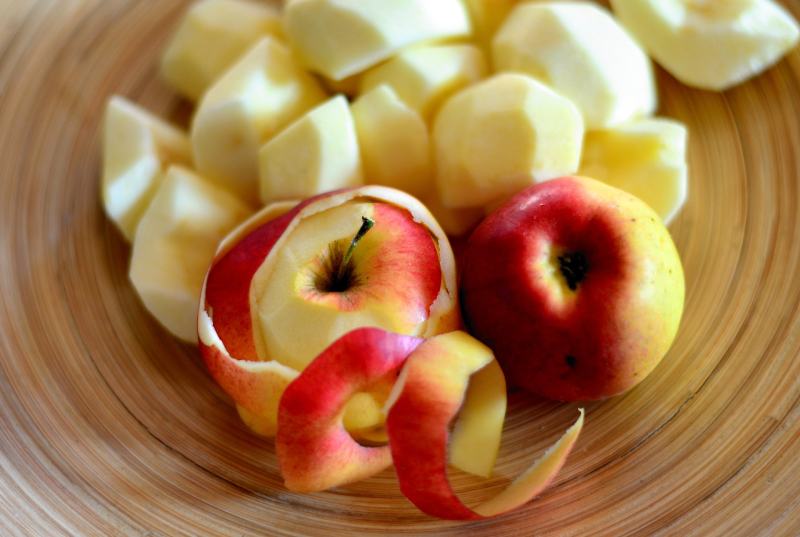
Risks of Feeding Apples to Your Hamster
Considering all of the benefits of giving apples to your hamster, it may come as a shock to find out that apples can also pose some risks. The first risk of feeding apples to your hamster is that consuming them in large quantities can cause health problems like obesity and diabetes, not to mention digestive upset, like stomach pain and diarrhea. This happens because apples are very high in sugar which isn’t healthy if eaten in large quantities.
The second risk is the apple seeds, which can be a choking hazard, lead to digestive obstruction, and contain small amounts of cyanide, a toxin that can be released if the apple seeds are chewed or digested.
Besides removing the apple seeds, we suggest that you cut apples into very small pieces because it will be easier for your hamster to chew and avoid choking.
Amount of Apple Safe for Hamsters?
We already talked about the benefits and risks of eating apples, but if you want to avoid these risks, you must feed them apples in the right amounts. We would suggest that you don’t give them apples more than two times a week and don’t give them as a whole meal. Apples are best served as an occasional treat and no more than a half teaspoon at a time. Your hamster will probably ask for more because of the amazing taste. Just be sure you don’t fall for it because small amounts are the best way for your hamster to get the benefits from apples without the risks. Also, washing the apple beforehand is crucial for removing any pesticides or other chemical substances.
Conclusion
Keeping your pet happy and healthy is the most important thing when keeping any animal, including hamsters. So with that said, proper research on what to feed your hamster and ways to improve their enclosure is crucial for being a good hamster owner. Talk to your veterinarian if you have any questions.
In this article, we talked about how apples can be a very healthy snack for your hamster. But if not given in moderation, they also have some potential risks, such as digestive upset or choking. Taking out the seeds and slicing the apple into small pieces, as well as feeding small amounts once or twice a week will help keep those risks to a minimum.
See Also:
Featured Image Credit: 955169, Pixabay


